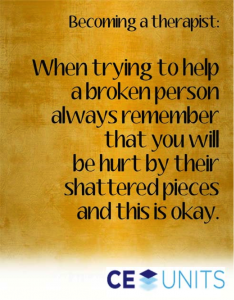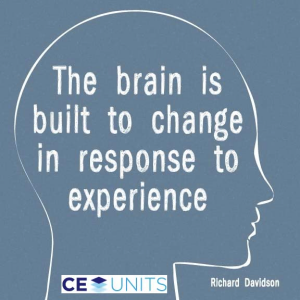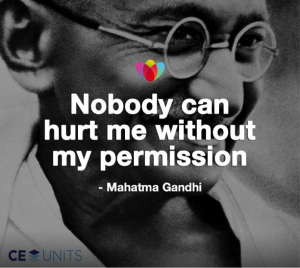The Reality of an Aging Population: Is Freedom 55 Attainable?
August 24th, 2015
By Megan Ferguson
Dementia is a debilitating illness that is characterized by degeneration of memory, cognition, behavior and the ability to perform activities of daily living. Approximately 35.6 million people worldwide have dementia and there are 7.7 million new cases every year and this is subject to continually increase as consequence of population aging and the projected increase of the aging population. In addition, although dementia mainly affects older adults, it is not attributed to an age-related change as it may lead to disability and lack of independence among older adults around the world. Although incidences of dementia, the most common being Alzheimer’s disease, have been rapidly increasing, no treatment has been developed to cure the disease or reverse its deterioration of the brain and individuals’ functioning capacity. Therefore, research needs to take place to establish inexpensive ways to help individuals reduce their risk of dementia and maintain cognitive function. Recent studies suggest that people who delay retirement have a decreased risk of developing Alzheimer’s disease or a related dementia. However, researchers believe that the age of onset of Alzheimer’s disease and dementia is affected by many more complex risk factors and protective factors that extend beyond simply delaying retirement, which makes this topic relevant to the future health of older adults.
Therefore, since the amount of people with dementia is expected to double by 2040, it is evident that a means to reduce the risk of dementia needs to be developed. However, older adults must decide what activities will be the most effective in helping them maintain cognitive and mental health throughout old age. For some this may be continuing to work or retirement, depending on their current occupation and job satisfaction or other unique ways of exercising their brains that will work for them. Due to the growing aging population and growing risk of dementia in the aging population, Freedom 55 may be attainable for some; however, not for all.
References
Basu, R. (2013). Education and dementia risk: results from the aging demographics
memory study. Research on Aging, 35, 7-31.
Beeri, M.S. & Goldbourt, U. (2011). Late-life dementia predicts mortality beyond
established midlife risk factors. American Journal of Geriatric Psychiatry, 19,
79-86.
Lupton, M.K., Stahl, D., Artcher, N., Foy, C., Poppe, M., Lovestone, S. et al. (2009).
Education, occupation and retirement age effects on age of onset of Alzheimer’s
disease. International Journal of Geriatric Psychiatry, 25, 30-36.
Kryscio, R.J., Abner, E.L., Lin, Y., Cooper, G.E., Fardo, D.W. et al. (2013). Adjusting
for mortality when identifying risk factors for transitions to mild cognitive impairment and dementia. Journal of Alzheimer’s Disease, 35, 823-832.
Marchione, M. (2013, July 15). Delaying retirement can delay dementia, large study
finds. The Associated Press. Retrieved from http://www.nbcnews.com/health/delaying-retirement-can-delay-dementia-large-study-finds-6C10637029.
World Health Organization (2012). Dementia Retrieved November 15, 2013 from
http://www.who.int/mediacentre/factsheets/fs362/en/.
Care Planning from an Interdisciplinary Framework
May 26th, 2015
By Megan Ferguson
Care planning involves answering the following questions:
1. What are the problems/issues?
2. Who is involved?
3. How do we (as professionals) intervene?
4. What are the goals of the intervention?
5. How do we evaluate our intervention?
In order to build on this framework, interdisciplinary care involves teamwork from a variety of professionals. For example, within a hospital, all members of the healthcare team (doctor, nurse, physiotherapist, occupational therapist, social worker, etc.) may be working towards a safe discharge plan for a patient to return home. Interdisciplinary care must occur to bring about improved patient outcomes such as more efficient practice, an increased individualized and patient centered approach and improved quality in care. If healthcare professionals do not have the same intervention goals, the patient may suffer. Therefore, if practitioners focus on a single, shared goal, a patient will be more successful in receiving the care that they require.
In addition, the need for interdisciplinary care should be increasing with:
• A growing aging population with chronic and complex needs
• The increasing knowledge and skill required to provide comprehensive care to patients
• The increasing specialization in healthcare fields
• The growing encouragement to develop multi-faceted teams in healthcare, and
• The increased emphasis on continuity in care planning.
Therefore, changes in practice approaches and interventions need to take place to advocate for the use of integrated care plans. With a growing aging demographic and the development of more complex health problems, it is crucial that interdisciplinary care is used in all areas of the healthcare field. Therefore, it must be represented in practice to improve quality and efficiency of care to all individuals.
Source: Andrew Booth, Steven Ariss,Tony Smith, Pam Enderby,and Alison Roots4 Susan A Nancarrow, “Ten principles of good interdisciplinary team work,” Human Resource Health, 2013: 1-11
7 Great Psychology Quotes to Live By
January 15th, 2015
There are quotes and then there are quotes that really sink in and make you think. A good quote will make you think in a new way, push you to make a change and usually originate from great minds. In the spirit of great quotes, we’ve pulled together the best psychology quotes of all time from the best psychiatrists and greatest thinkers of all time for you to enjoy.
1. Meeting of Two Personalities Quote
2. Becoming a Therapist
3. The brain is built to change
4. What screws us up most in life
5) Love is the only way
6) I have discovered the value of psychology and psychiatry
7) Nobody can hurt me
The Therapy Relationship and Outcomes: What Do We Know?
December 16th, 2014
Despite what Big Pharma and Big Medical would have us believe, decades of careful scientific research have documented the effectiveness of psychotherapy. It’s been studied more than nearly any pill, surgical procedure, or medical device. As an old colleague once said, “We’ve studied the snot out of psychotherapy”.
When research evaluates the factors that contribute to psychotherapy success the emerging answer is that, like all complex human endeavors, many factors account for success (and failure): the client, the treatment method, the psychotherapist, the context, and the relationship between the therapist and the client.
We hear often that research finds this last nugget to be impactful: the relationship between the therapist and the client. But few of us have the time to collect and review all the studies on the therapy relationship.
But we’re in luck. A new CEUnits course, Evidence-Based Therapy Relationships summarizes the impact of key elements of the therapy relationship on treatment outcomes. For each therapy relationship element, several therapeutic practices are described, in terms of both the therapist’s contribution and the client’s perspective. The course concludes with a chapter that reviews the research findings on adapting or tailoring the relationship to the individual patient in an effort to achieve that good fit, that optimal match between a unique client and the treatment.
We are very pleased to now offer this course to help support the continued honing of good practice, and help invigorate us with the confidence of knowing our work matters.
5 Quick Stress Management Tips for the Holidays
December 9th, 2014
By Lauren Dennelly, MSW, LCSW
Ahhh, the holidays. It’s the best time of the year, right? Well, ideally. The holidays can also be the most stressful and overwhelming time of the year. According to a 2008 holiday stress poll from the American Psychological Association, more than 8 out of 10 Americans expect the holiday season to be a stressful time.1 One third of people polled felt they would have too many obligations and would be expected to buy gifts, piling financial strain on top of emotional exhaustion. The holidays can also be a particularly stressful time for families with children who, according to the poll, anticipated more stress than families without children (ok we knew that one already)! If all this has you sweating over the holiday rush, here are a few tips to keep things merry and bright.
- Ask for help
It’s pretty much a given that you will be balancing holiday parties, family gatherings, and maybe even hosting duties of your own. Be realistic. If there is something that you can delegate to someone else, do it. You will be thankful later that you didn’t overwhelm yourself and were able to enjoy the holiday without becoming exhausted. - Learn how to say ‘no’
We all have of lots of competing responsibilities, especially when it comes to family. If you find yourself dreading going to an engagement, ask yourself what is really important to you and what will have the least stressful repercussions. If stressful engagements still can’t be avoided, develop a safety plan to reduce stress on the spot- go for walk, take a few deep breath for ten minutes in a quiet place, and/or set a definite time to leave a gathering. A little pre-planning can go a long way. - Reduce screen time
Screen time can sometimes be a helpful distraction, but it can also be activating stress-wise. Reducing the amount of time you spend on Facebook, watching the news, or playing with your phone can be stress-relieving (really!). Try and lessen over stimulation by putting the phone down and picking up a book, taking a hot shower or bath, or turning the TV off and listening to some music that you enjoy. - Do for yourself (Self-care 101)
Be in tune with yourself and know your ‘stress signals’. Make some time during your busy week to do something you enjoy and unwind. It’s just as important as buying that last minute gift. - Talk to someone
Let someone know how you are feeling. Chances are your friend or family member may be just as stressed out as you are and can offer some support. You’re not alone!
References:
1. www.apa.org/helpcenter/parents-holiday.aspx
Mindfulness and Human Services
December 2nd, 2014
-by Megan Ferguson, Contributing Writer
“Mindfulness” is translated as “awareness” or “bare attention”. It is often used as a way to refer to being attentive in sensitive, accepting and independent of any thoughts that may be present. Therefore, as a psychological process, mindfulness is the action of being intentionally present and attentive toward internal and external stimuli occurring in momentary experiences. Since mindfulness requires individuals to monitor the focus of attention, a method of instruction is provided to achieve mindfulness.
- First, practitioners place conscious, nonjudgmental attention on an object to focus such as breath, sight, sound or bodily sensations.
- Second, when the practitioner notices that attention has drifted, they bring the client’s attention back to the stimuli in focus. Therefore, since mindfulness is a very thought out process, training clients in mindfulness practice includes training them to practice a technique grounded in philosophy that is oriented toward developing unique skills for daily life.
Mindfulness Methods
Mindfulness-based methods are both professionally and personally beneficial to practitioners and are efficient in helping clients cope with both physical and mental health issues. Practitioners are usually able to
- (a) distinguish between psychological processes related to mindfulness and other mental processes critical to clinical practice,
- (b) have knowledge of the various types and methods of medication and mindfulness,
- (c) have knowledge of which types of mindfulness methods are effective, ineffective and potentially harmful for use in treating specific mental health issues,
- (d) and practice each specific mindfulness technique before using that technique with clients.
Therefore, it is imperative that practitioners use both their personal and professional knowledge to use mindfulness-based techniques to ensure the relevancy of specific mindfulness practice. Practitioners should also be able to distinguish between mindfulness-related and other states of mind; however, additional research is still required to better understand and explore the mental health effects of different mindfulness methods.
Mindfulness-based practice is particularly important when helping clients overcome traumatic reactions or events. Individuals who have experienced trauma are understandably motivated to avoid thoughts, feelings and memories of their traumatic experience.
‘Mindfulness-based practice is particularly important when helping clients overcome traumatic reactions or events ‘
However, compassion is viewed as an extremely beneficial manner to help an individual redevelop and grow from their experience. Traumatic experiences that may include interpersonal oppression or prejudice, which often results in individualized or interpersonal alienation, can help individuals redevelop relationships with people. Mindfulness and compassion can also help the trauma victim develop problem solving and adaptation approaches in response to their traumatic experience to help them develop new learning out of the experience. The therapeutic relationship also helps the client to come to terms with their trauma-related memories, relational schema and conditioned emotional responses. Mindfulness and compassion also work on the cognitive level in helping the client with new information and experiences of unconditional caring, acceptance, mindful awareness and attunement to help the client update his or her assumptions and behaviors. Mindfulness and compassion becomes very client focused so that practitioners are effective in the techniques that they use.
If you would like additional information regarding Mindfulness, CEUnits.com offers four courses in Mindfulness:
• Treatment of Depression in Older Adults: Evidence-Based Practice
• Mindfulness in Psychotherapy
• Working with Trauma – Mindfulness and Compassion
• Mindfulness Competencies for Counselors and Psychotherapists
(information and statistics in the article are drawn from this course).











